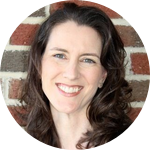About This Project
A certification is an objective verification of competency for a particular profession or job role, such as those required by many states for teachers to attain licensure. What would a certification test for Montessori teachers look like? How would it benefit both public and private Montessori education? This study is intended to address these questions as well as the scientific methods used to establish the foundation for a certification test.
Ask the Scientists
Join The DiscussionWhat is the context of this research?
As the Montessori system of education spreads in both public and private educational settings, the demand for qualified Montessori teachers is also increasing. Montessori teacher education is often not recognized for its rigor, and teachers are not recognized for their level of competency in providing quality education. Many career lattices of state professional registries and workforce do not include early childhood Montessori teachers, or rank them as equivalent to a Child Development Associate certificate. This lack of recognition limits Montessori education and the professionalism of its teachers in a variety of ways.
What is the significance of this project?
What would a Montessori specific certification that parallels traditional teacher certification look like? This study is intended to be a proof-of-concept designed to answer that question for early childhood Montessori teachers in one state. South Carolina was selected due to the breadth of Montessori programs in the state. Practice settings include private and many varieties of public programs including charter, magnate, school-within-school, and non-charter whole schools.
Although Montessori educators can be licensed in South Carolina, one requirement is passing the designated Praxis™ exams. These exams are not aligned with the Montessori pedagogy or age groupings, therefore fail to allow teachers to demonstrate competency in a Montessori classroom.
What are the goals of the project?
Immediate Goal-
This study will define the essential tasks performed by an early childhood Montessori teacher in order to establish the content domain for a certification test. Determining these tasks is a two step process; 1) a one-day meeting with a panel of 8-12 Montessori public and private school teachers and teacher educators in South Carolina, and 2) a survey allowing a broader representation of the population to express opinions about those competencies.
Long Term Goal-
Although the generalizability of this study is limited to South Carolina, the results may be used to develop a pilot program in South Carolina and/or provide the foundation for a national study.
Budget
The panel of teachers and teacher educators will be volunteering their expertise and time to this project which will be held in the midland region of South Carolina, near Columbia. Volunteers traveling from other regions of the state will need hotel accommodations for the night prior to the meeting. As the meeting space has been generously donated, the remainder of the funds will be used for meals, and printing of materials.
Endorsed by
Meet the Team
Team Bio
I earned an undergraduate degree in Art History with the intent of pursuing a career in managing art galleries. Instead, a position at a large IT company set me on a different trajectory. I developed a passion for the work and the people in the certification industry, for both those doing the technical work of developing the tests and those taking the tests.
Since then I've earned an M.A. in Educational Psychology, Evaluation, and Measurement, spent nearly 5 years working as a psychometrician (technical jargon for testing expert), and am currently finishing up a PhD in Education with an emphasis in measurement and evaluation.
My interest in this project originates with my two children who began Montessori at age 2 and currently attend a public Montessori Charter school.
When I'm not deliberating on the state of education and testing or pursuing my graduate studies I'm hanging out with my kids, reading, or helping to organize neighborhood social events that raise money for local causes.
Additional Information
Benefits of a Montessori specific certification include: increased recognition of professionalism for teachers, legitimacy of the pedagogy and teacher preparation, accountability for schools, and consumer protection. A certification would also be a powerful advocacy tool to gain licensing status at the state level.
Benefits to the psychometric (testing) community include: comparison of the value of the survey beyond results of the panel of experts when developing a testing program with a relatively small target population.
Project Backers
- 19Backers
- 100%Funded
- $1,800Total Donations
- $90.00Average Donation

